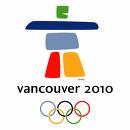The Winter Olympics 2010 – on track for linguistic success?
 The Winter Olympics’ glittering opening ceremony took place on February 12 in Vancouver and was watched by an unprecedented 13.3 million TV viewers in Canada alone. With more than 80 different nations competing, the linguistic landscape in Canada is alive with foreign languages. Records are also being set outside of the sporting arena, as this year’s event is benefitting from improved language policies in relation to media coverage and wide-reaching social inclusion programmes for indigenous peoples.
The Winter Olympics’ glittering opening ceremony took place on February 12 in Vancouver and was watched by an unprecedented 13.3 million TV viewers in Canada alone. With more than 80 different nations competing, the linguistic landscape in Canada is alive with foreign languages. Records are also being set outside of the sporting arena, as this year’s event is benefitting from improved language policies in relation to media coverage and wide-reaching social inclusion programmes for indigenous peoples.
Canada’s commitment to linguistic diversity was highlighted by the protocol signed in 2005 between the Organizing Committee and the Lil’wat, Musqueam, Squamish and Tsleil-Waututh First Nations. It was the first such partnership in the history of the Winter Olympics and has been mooted as one of the deciding factors in Canada’s successful bid to host the event. Along with the cultural, economic and educational initiatives, The Assembly of First Nations stated that the protocol will ‘increase opportunities to showcase art, language, traditions, history and culture’.
Another language first can be seen with APTN (the Aboriginal People’s Television Network) – the first network to broadcast live coverage of the Games in Aboriginal languages. For the opening and closing ceremonies, audio coverage is provided in various aboriginal languages, with subtitles in French and English. APTN are providing 250 hours of multi-language commentary in ten different languages and the inclusion of First Nation, Inuit and Métis languages in this schedule ‘will be a landmark in the global television industry, in the advancement of Aboriginal cultures and in the promotion and preservation of Aboriginal languages in Canada’ said ATPN’s CEO.
There is also the collaboration between APTN and MBC (the Missinipi Broadcasting Corporation) who will be broadcasting through the medium of Cree for the first time. The La Ronge Northerner reported that in addition to on-air Cree language services, control room translation will be provided and furthermore, due to the dialectic complexity of the Cree language, preparation for this event included the creation of a glossary in collaboration with FNUC (the First Nations University of Canada).
However, it’s not all good news on the language front as criticisms regarding the lack of French usage at the opening ceremony have already been noted. According to the National Post, James Moore (Minister of Canadian Heritage and Official Languages) has aired his concerns about the way in which the English language was favoured over French in the opening ceremony and he has also expressed disappointment that expectations for ‘an entirely bilingual event’ have not been met. French was used in the following instances, but insufficiently so: in the VANOC (Vancouver Organizing Committee) Chairman’s opening speech; in the official declaration of the opening of the games, which was made in French first and followed by an English translation; in the official oath taken by the speed-skating referee; and when French Canadian singer Garou performed in French. Mr Moore hopes that the use of French will be increased in time for the closing ceremony.
It appears that off-piste language news is certainly a talking point of the 2010 Winter Olympics!
